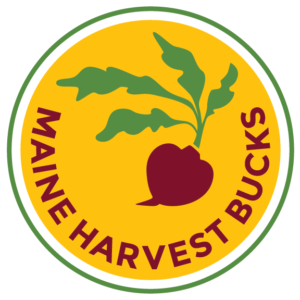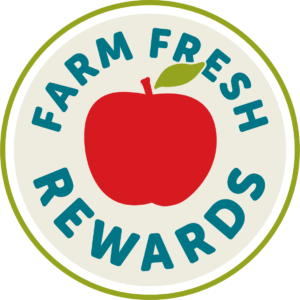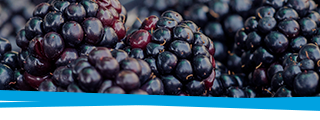Community Resources
Maine Food Supplement Program (also known as SNAP and formerly known as Food Stamps) is a federal nutrition program that helps you stretch your food budget in order to buy healthy foods for your family.
To apply for Food Supplement, Health Care, Cash Assistance, or Child Care
Visit My Maine Connection
Call
1-(800) 442-6003
Food Pantries are places where you can go to get food at no cost.
Additional Resources
Food Assistance
Maine Food Supplement Program (SNAP)
Maine Food Supplement Program (also known as SNAP and formerly known as Food Stamps) is a federal nutrition program that helps you stretch your food budget in order to buy healthy foods for your family. See My Maine Connection for more information about applying for these benefits.
Phone number: 1-(800) 442-6003
Women, Infants, and Children Special Nutrition Assistance Program (WIC)
The Women, Infants, and Children Special Nutrition Assistance Program (also known as WIC) provides thousands of Maine families with nutritious food to help their children grow up strong! The WIC Program provides supplemental foods, nutrition education, and referrals to health care, at no cost to low-income pregnant, breastfeeding, and postpartum women, infants, and children up to age 5 who have been determined to be at nutritional risk.
To be fully eligible for the WIC Program, applicants must be determined by a health professional, at no cost, to be at nutritional risk (i.e., have certain medical-based or diet-based risk conditions).
Who can apply for the Maine WIC Nutrition Program?
WIC is open to anyone living in Maine, including migrants working in Maine. Applicants can be any of the following:
- Women who are pregnant, breastfeeding, or had a baby in the last six months.
- Infants and children up to the age of five, including adopted and foster children.
- Fathers may apply for their children.
Maine Temporary Assistance for Needy Families
Maine Temporary Assistance for Needy Families (TANF) is financial assistance to keep children in their homes while the family is temporarily unable to support themselves. While receiving assistance, parents (or caretaker relatives) work on an employment plan to become self-supporting.
Food Pantries
Food Pantries are places where you can go to get food to prepare for your family at no cost. Click here to find a Food Pantry near you.
General Assistance
General Assistance provides benefits to families with children in some situations when the family is threatened by destitution or homelessness due to an emergency situation. These situations include fire, other natural disasters, termination of utility service, evictions, or lack of adequate shelter. Only certain items can be purchased.
To find out how to qualify for your local General Assistance program, please visit 211maine.org.
Farmers’ Markets
Did you know that Farmers’ Markets can accept SNAP/EBT benefits? Find a Farmers’ Market that accepts Food Supplement Benefits (SNAP/EBT) near you.
Maine Harvest Bucks and Farm Fresh Rewards

Maine Harvest Bucks is offered at participating farmers’ markets, Community Supported Agriculture (CSA) farms, and farm stands (find participating locations).
Spend $1 in SNAP and get $1 in Maine Harvest Bucks. Use your Harvest Bucks the same day, or save for when you are ready to buy fresh fruits and vegetables. Learn how it works by watching this one-minute video!

Farm Fresh Rewards is offered at these participating retail stores.
Spend $5 on local food and get $5 in Farm Fresh Rewards. Earn Farm Fresh Rewards by buying local foods with SNAP/EBT, and spend your vouchers on local fruits and veggies.
Food Assistance Programs for Children
Click here for a list of Food Assistance Programs for Children in Maine
The School Breakfast and School Lunch Programs make nutritionally balanced, low-cost, or free meals available to school children each school day. Nationwide, over 92,000 schools offer lunches at school, and nearly 70,000 schools offer breakfast at school.
Federally-funded school breakfasts and lunches must meet the Dietary Guidelines for Americans and Federal Nutrition Standards for School Meals. Some schools offer after-school snacks to children in the school’s afterschool care programs.
School Lunch is offered at public schools around the state. Depending on your income, you could pay a reduced amount or nothing at all, and your child would receive a nutritionally balanced meal.
The Special Milk Program provides milk to children in schools, childcare institutions, and eligible camps that do not participate in other Federal child nutrition meal service programs. Schools that participate in the National School Lunch or School Breakfast Programs can participate in the Special Milk Program for half-day kindergarten and pre-kindergarten children who do not have access to a school meals program.
The Maine Summer Food Service Program (SFSP) provides free, nutritious meals and snacks to help children in low-income areas get the nutrition they need to learn, play, and grow throughout the summer months when they are out of school.
Child Care
Head Start
Head Start is a Federal program that promotes the school readiness of children from birth to age five from low-income families by enhancing their cognitive, social, and emotional development. Head Start programs provide a learning environment that supports children’s growth in many areas, including language, literacy, and social and emotional development.
Head Start emphasizes the role of parents as their child’s first and most important teacher. These programs help build relationships with families that support family well-being and many other important areas. Many Head Start programs also provide Early Head Start, which serves infants, toddlers, and pregnant women and their families who have incomes below the Federal poverty level.
Housing Assistance
Click here for all programs available through the Maine State Housing Authority
Homeless Assistance
If you are homeless and need emergency shelter, or need transitional or subsidized housing to get back on your feet, MaineHousing may be able to help you locate resources such as emergency shelters and affordable housing options. MaineHousing and its partners are working to end homelessness in Maine. For information on other shelters or resources in your area, dial 2-1-1 or go to 211maine.org/.
Rental Assistance
With rents rising faster than incomes, rental housing costs are increasingly out of reach for many low-income Maine people. Rental assistance, either in the form of housing choice vouchers or subsidized apartments, can help. Vouchers can help pay your rent in the apartment of your choice. Subsidized apartments provide qualified tenants affordable (usually below market) rents. Waiting lists can be long, so you may want to apply for both kinds of help.
Heating Assistance
The Low Income Home Energy Assistance Program (commonly called LIHEAP or HEAP) provides money to low-income homeowners and renters to help pay heating costs. Eleven Community Action Programs distribute the funds throughout Maine, in most cases directly to the fuel vendors. The program is not intended to pay for all heating costs, but will assist in paying your heating bills.
LIHEAP is Federally funded through the Department of Health and Human Services. The Federal government establishes funding levels annually. LIHEAP is targeted to low and very low-income Maine homeowners and renters.
Weatherization Assistance Program
The Maine State Housing Authority operates the Weatherization and Central Heating Improvement Programs (CHIP) to finance energy-related repairs for low-income homeowners and renters. The programs are run through Maine’s Community Action Program (CAP) agencies. The Weatherization program finances improvements that increase the energy efficiency of the home – such as insulation, weatherstripping, and in some cases safety-related repairs and general improvements.
Senior Health
Meals on Wheels
All meals provided through Maine’s Meals on Wheels program are approved by a Maine-registered dietitian. The food is prepared in USDA-inspected kitchens through a local Maine company. Each meal is designed to meet one-third Federal Dietary Reference Intake (DRI) for a healthy and balanced diet. Meals are freshly prepared and ready to eat when convenient for participants. Entrées generally feature a protein main dish, a side dish, vegetable, and side of bread. Clients can also receive a quart of milk per week.
Meals on Wheels currently has several meal options available for those with dietary concerns: standard, low sodium, vegetarian, gluten-free, and pureed meals. They can also accommodate additional dietary concerns.
How much is Meals on Wheels?
There is a recommended a $3.50 per meal donation in order to keep the Meals on Wheels program going. However, donations of all sizes are welcome and no one will ever be turned away if unable to contribute.
Do you qualify for Meals on Wheels?
You may qualify for our Meals on Wheels program if you are:
- Age 60 or older
- Primarily homebound or able to get out, but with difficulty
- Unable to regularly prepare nutritious meals
- Able to accept meals during the delivery time frame
- Agree to an in-home nutritional assessment
Do you have a short-term need?
Sometimes a temporary health problem is all it takes to disrupt the normal cooking routine – just when good nutrition is necessary to heal and recover from surgery or illness. Meals on Wheels can help, even on a short-term basis.
To find meals near you, please visit Meals on Wheels America and input your zip code.
Maine Senior Farm Share
Maine Senior Farm Share provides low-income seniors the chance to receive fresh vegetables and fruits from Maine farmers during the growing season. Farmers sign up in January, seniors sign up in March and April.
Area Agencies on Aging
The Area Agencies on Aging make a difference in the everyday lives of Maine’s older adults. They bring meals, provide family caregiver support, offer expert advice on insurance and drug benefits, and direct disabled and aging Mainers to appropriate community resources. Maybe most importantly, they provide a community for seniors – places for social interaction, learning, and care.
Have questions? Call 1-877-353-3771 for more information.
Health and Dental Care
Click here for a list of Federally-qualified health centers in Maine
Maine’s Community Health Centers exist in high need communities that are designated as either medically underserved areas or populations. Community Health Centers provide comprehensive primary care to anyone who walks through the door, regardless of health insurance status or ability to pay.
MaineCare
MaineCare (formerly Medicaid) is a “Federal/State” program, which provides assistance to people with limited resources. Specifically, MaineCare can help eligible Maine residents with their health care payments. MaineCare provides free or low-cost health insurance for families with children and pregnant women.
Community Action Programs
The Maine Community Action Association represents 10 Community Action Agencies that provide services to low-income people across Maine. Community Action Agencies were created in the mid-1960’s under the Economic Opportunity Act of 1964 and have served the needs of low-income people for the last 47 years. The association is dedicated to supporting and advocating for Community Action Agencies which help empower low-income people to lift themselves and their families out of poverty.
Education
The Maine Adult Education Association has more than 80 adult education programs, from Fort Kent to Kittery and everywhere in between. Maine Adult Ed programs offer thousands of classes including business training, fun, personal enrichment, and more.
The University of Maine Cooperative Extension offers Food and Nutrition Programs to engage Maine citizens. They offer dynamic educational opportunities designed to influence personal choices that promote a robust local food economy and also improve personal health as well as community well-being.
Additionally, they have a network of county-based offices staffed by experts who provide practical, locally-based solutions for farmers, small business owners, kids, parents, consumers, and others.



